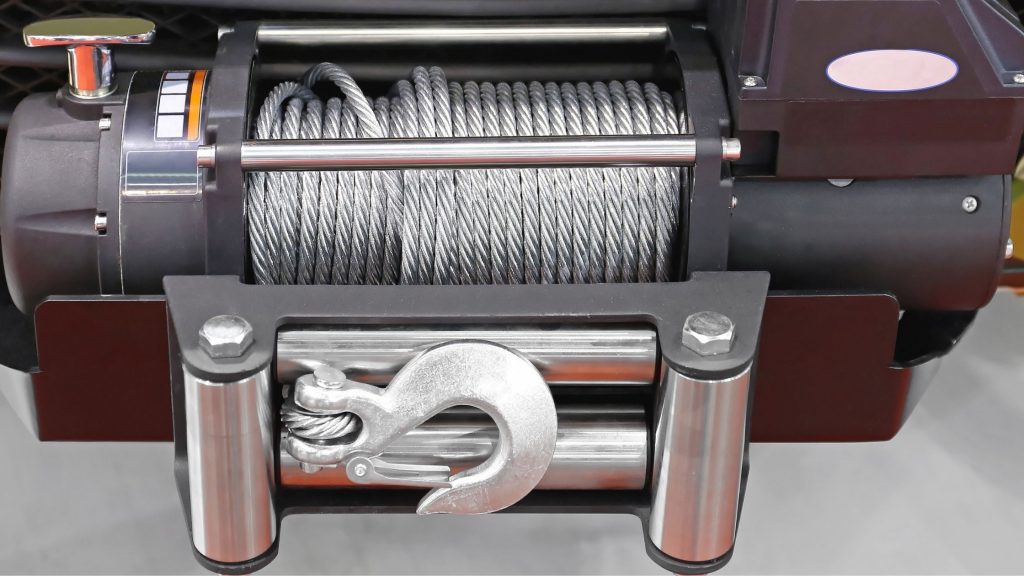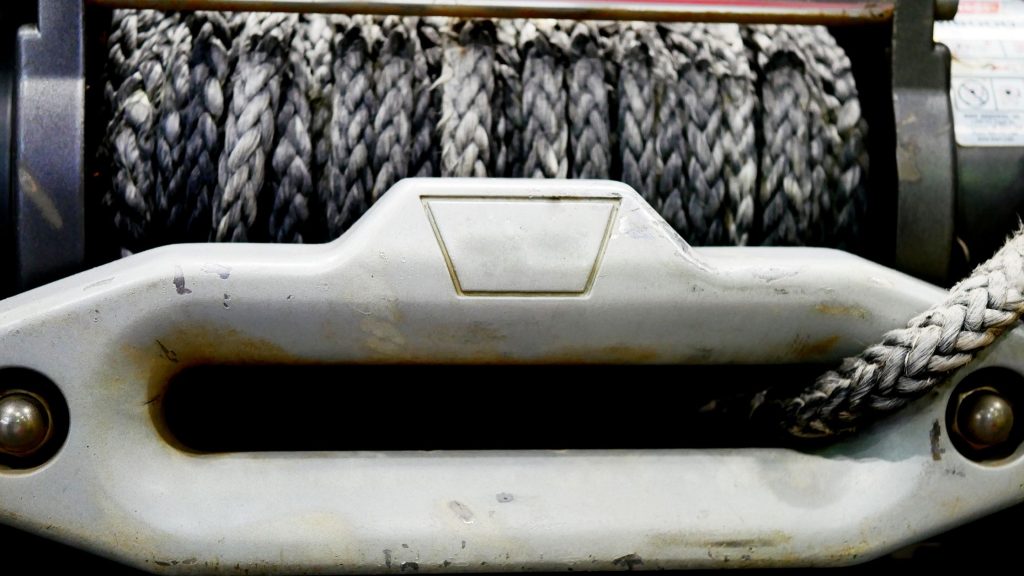Every off-road enthusiast should invest in a quality winch as it can often prove to be the difference between an enjoyable 4×4 outing and a disaster with losses in both time and money. There are two main types of winch ropes to choose from, and both come with pros and cons of their own.
Although the steel cable winch has been the way to go for decades, the last twenty or so years have seen the rise of a synthetic winch rope. Whether used for self-recovery or to pull someone else out of a tricky situation, both options should be able to get the job done given the right circumstances.
Here’s a breakdown of their most common advantages and disadvantages, and what to pay attention to when choosing your next winch rope.
Steel Cable Winch Rope

The steel cable rope has been around since the inception of the winch itself. It’s the most common type of winch rope out there, although the synthetic rope has been gaining in popularity in recent years. Being as durable and strong as it is, steel rope is ideal for both recovery and utility work.
Made out of aircraft-grade steel cable, wire ropes are extremely durable and genuinely less maintenance-needy than their synthetic counterparts. Thanks to that, they represent a perfect choice for the less ideal weather conditions. The steel winch cable will neither freeze nor disintegrate under chemical, water, or heat exposure. They only require token maintenance, and an occasional WD-40 or chain oil coating will go a long way in preventing unwanted rust.
The issues with steel cables mostly go down to wear and tear. After prolonged use, steel ropes tend to rust and become frayed. Not only can this lead to potential injury, which is why it’s recommended to handle them with gloves, but it can also lead to damage to the winch drum itself through scratching and erosion. Steel winch rope is also prone to kinking which further degrades it and makes spooling harder.
The biggest potential issue with the steel rope winch, however, is the one concerning safety. Steel cables (especially frayed ones) are prone to snapping, and since they store an abundance of energy, this can be dangerous. Although they’ll require a high load to snap (not as high as synthetic ropes, though), once they do, steel cables have the potential to cause serious injury or even death in the worst-case scenario.
- Strength and durability
- Maintenance-friendly
- Lower cost
- Prone to rusting and fraying
- Can cause damage to the winch
- Can snap with force
Synthetic Winch Rope

The synthetic rope was first introduced during the nineties, and although it was initially frowned upon, it’s become increasingly more popular with off-road enthusiasts across the globe over the years. Especially since the art of manufacturing has matured over the years and the end-product is of much higher quality now than what it used to be over a couple of decades ago.
Made out of ultra-high molecular polyethylene, the synthetic winch rope serves as a much lighter and safer alternative to the steel cable. It doesn’t only lack the obvious weight of a steel cable but stores energy in a different manner altogether, making it virtually harmless after potential snapping. The synthetic winch cable is also much more flexible than its counterpart and can be easily mended in the field should it break.
Although it won’t kink like the steel cable, a synthetic rope can develop knots if improperly handled. As already mentioned, a synthetic winch line is more susceptible to damage from the elements (water, heat), UV light, and mold among others. Most synthetic ropes, however, come to their breaking point after contact with rough surfaces like sharp rocks. Prolonged exposure to any of these will significantly weaken the rope, leaving it incapable of fulfilling its intended purpose. Because of this, quality synthetic ropes come with a special protective coating and/or a protective anti-abrasion sliding sleeve.
Synthetic winch ropes also require more frequent and more thorough maintenance. It is advisable to wash and properly dry the rope after each use – especially if it gets plenty of action in the mud and sand.
Finally, synthetic material doesn’t dissipate heat the way steel cables do, which can lead to potential interior damage to the winch drum itself when the hot rope gets spooled onto it.
- Strong yet lightweight
- Flexible and easy to handle
- Not as dangerous if it snaps
- Expensive
- Requires more maintenance
- Susceptible to damage from the elements
Verdict
Both the synthetic rope and steel cable winch will make your life on the trail easier regardless of their respective advantages and disadvantages.
The old-fashioned winch with a steel cable requires some know-how to use but ultimately doesn’t require too much attention when it comes to maintenance and doesn’t cost an arm and a leg. The much more expensive synthetic winch rope, on the other hand, is extremely flexible and easy to use but also requires much more attention after each outing.
Contrary to popular belief, it’s the synthetic rope that can bear heavier loads than its counterpart steel cable. The latter is more durable, however, and will only snap once its ultimate tensile strength threshold has been reached. Synthetic cable, on the other hand, might break upon contact with a sharp or rugged surface, circumventing its tensile strength altogether.
Regardless of which one you end up going with, it’s advisable to conduct a proper inspection of a rope before each use. Looking for possible breaking points can go a long way in preventing any undesirable damage to the winch or vehicle – not to mention it’ll significantly lower the risk of injury.
At the end of the day, it most likely comes down to how much money you’re prepared to shell out and how much hassle are you willing to go through. If the money is tight, the old faithful steel cable will do just nicely. If you emphasize safety and ease of use, on the other hand, then the synthetic winch rope is your friend.
Hopefully, this has been useful in helping you decide on whether to buy a synthetic winch rope or a steel cable wire. Happy trails.
- Tips and tricks For Setting Up Camp Like a Pro - September 11, 2023
- The Best Multi-Tools for Overlanding Adventures - August 25, 2023
- Off-Road Navigation Tips for Overlanders - August 13, 2023


